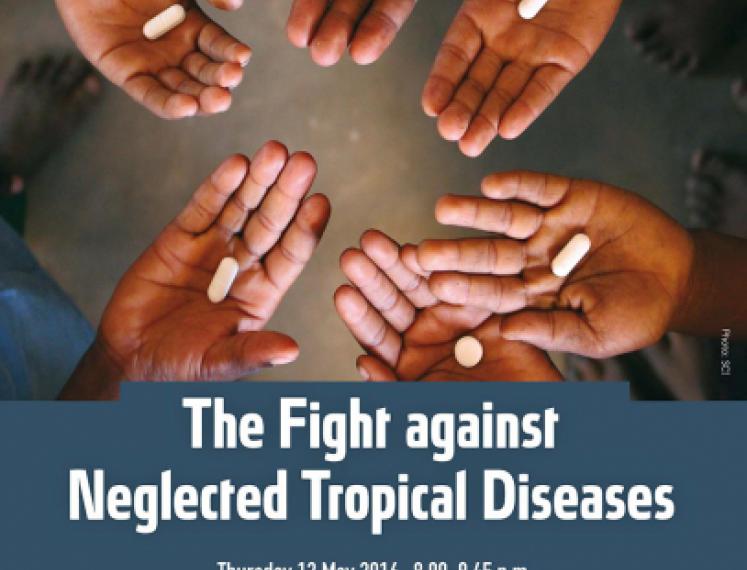
Academiegebouw
Broerstraat 5
Groningen
Netherlands
The Fight against Neglected Tropical Diseases
Ninety percent of the burden of neglected tropical diseases is in Africa, where children are the most vulnerable. How can large-scale health interventions be made successful?
Neglected tropical diseases (NTDs), caused by parasitic and bacterial infections, affect over a billion people globally, most of whom have little or no access to life-changing treatment. Ninety percent of the disease burden is in Africa, where children are the most vulnerable to NTDs such as schistosomiasis (bilharzia), ascariasis and hookworm infection. These diseases persist exclusively in the poorest communities. They thrive in places with unsafe water, poor sanitation, and limited access to basic health care. NTDs cause severe pain and life-long disabilities: they blind, debilitate, deform, or maim. From initial infection, the parasites multiply and migrate through the body and mature and accumulate in tissues, internal organs, the eyes or the lymphatic system. Some destroy the skin. If left undetected and untreated, the damage is irreversible.
Alan Fenwick, Professor of Tropical Parasitology, has spent nearly 40 years in sub-Saharan Africa, carrying out research and programs tackling one of the most prevalent NTDs: schistosomiasis, a parasite transmitted through freshwater snails. His organization, the Schistosomiasis Control Initiative (SCI), treats children and at-risk adults for schistosomiasis and soil transmitted helminths (whipworm, hookworm, roundworm). The World Health Organization has described SCI as ‘the best buy in public health’. Why is the SCI so successful? How can large-scale health interventions be made efficient and cost-effective?
Co-speaker Tjip van der Werf will briefly touch upon Buruli ulcer, yet another neglected tropical disease. Like leprosy and tuberculosis, Buruli ulcer is caused by a micro-organism belonging to the group of mycobacteria, a relatively slow-growing bacteria with an exceptionally thick fatty cell wall. He will also address the emerging problem of drug-resistance in tuberculosis.
Alan Fenwick is the founder and director of the Schistosomiasis Control Initiative (SCI) and Professor of Tropical Parasitology at Imperial College, UK. Earlier, he worked on schistosomiasis research and control in Tanzania, Sudan and Egypt. He has pioneered the control of neglected tropical diseases in Africa and regularly returns to the 8 countries in which SCI is active.
Professor Tjip van der Werf (UMCG) worked in Ghana as a tropical doctor before specializing in Pulmonary Medicine. His research interest is in drug treatment for Buruli ulcer, and he currently leads a WHO-sponsored drug trial for Buruli ulcer in Ghana and Benin; he also studies drug-resistant tuberculosis.
This lecture is organized by Humanistisch Verbond Groningen and the social movement Effective Altruism in co-operation with Studium Generale Groningen.


